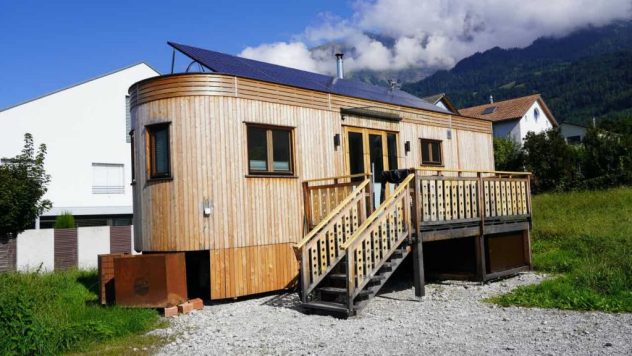Shipping container craze brings scams

By Greg Collier
In recent years, shipping containers have become a popular choice in the tiny house movement due to their affordability, durability, and eco-friendly nature. These pre-fabricated steel structures offer a sturdy and weather-resistant shell, ideal for transforming into compact living spaces. Many people are drawn to shipping containers because they repurpose existing materials, reducing the need for new construction resources and contributing to sustainable living practices. Their uniform size and shape allow for creative architectural designs and flexible housing solutions in both urban and rural settings.
Using shipping containers for tiny homes also presents several drawbacks. One significant concern is insulation; the steel walls of a container can make it challenging to maintain a comfortable indoor temperature without proper insulation, which can add to construction costs. Modifying a shipping container to include necessary amenities, such as plumbing and electricity, can be complex and may require professional assistance. Furthermore, not all areas have zoning regulations that accommodate container homes, potentially complicating the permitting process. However, if someone is still interested in converting a shipping container into a home, there is another potential pitfall to watch out for, scammers.
As the demand for shipping containers increases, so do scams involving their sale and lease. The Pueblo County Sheriff’s Office (PCSO) in Colorado recently issued a warning about a scam where individuals falsely pose as businesses that lease or sell shipping containers. These scammers create fake listings and websites, often using photos of containers that don’t exist. They ask for payment upfront, promising delivery that never happens, leaving victims thousands of dollars out of pocket.
The PCSO advises the community to be cautious and conduct thorough research before engaging with any company offering shipping containers. This includes searching for information on rating sites like the Better Business Bureau and studying the company’s website carefully. If a physical address is provided, it’s wise to verify it using Google Maps to ensure it is not an empty lot or residential address. Checking customer reviews on third-party sites can also help identify potential scams or dishonest business practices.
Additionally, it’s crucial to be skeptical of extremely low prices and non-traditional payment methods. Scammers often employ aggressive sales tactics, creating urgency to prevent potential buyers from thinking through their decisions. If the seller refuses to allow you to see the product in person or insists on upfront payment, it’s likely a scam. By taking these precautions, you can protect yourself from falling victim to shipping container scams while exploring their innovative potential in the tiny house movement.



Leave a Reply